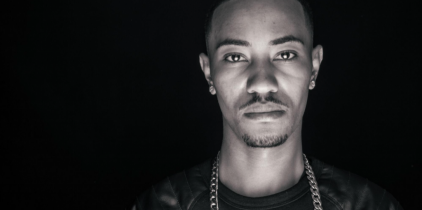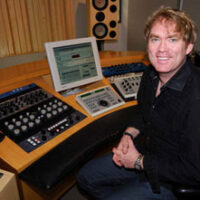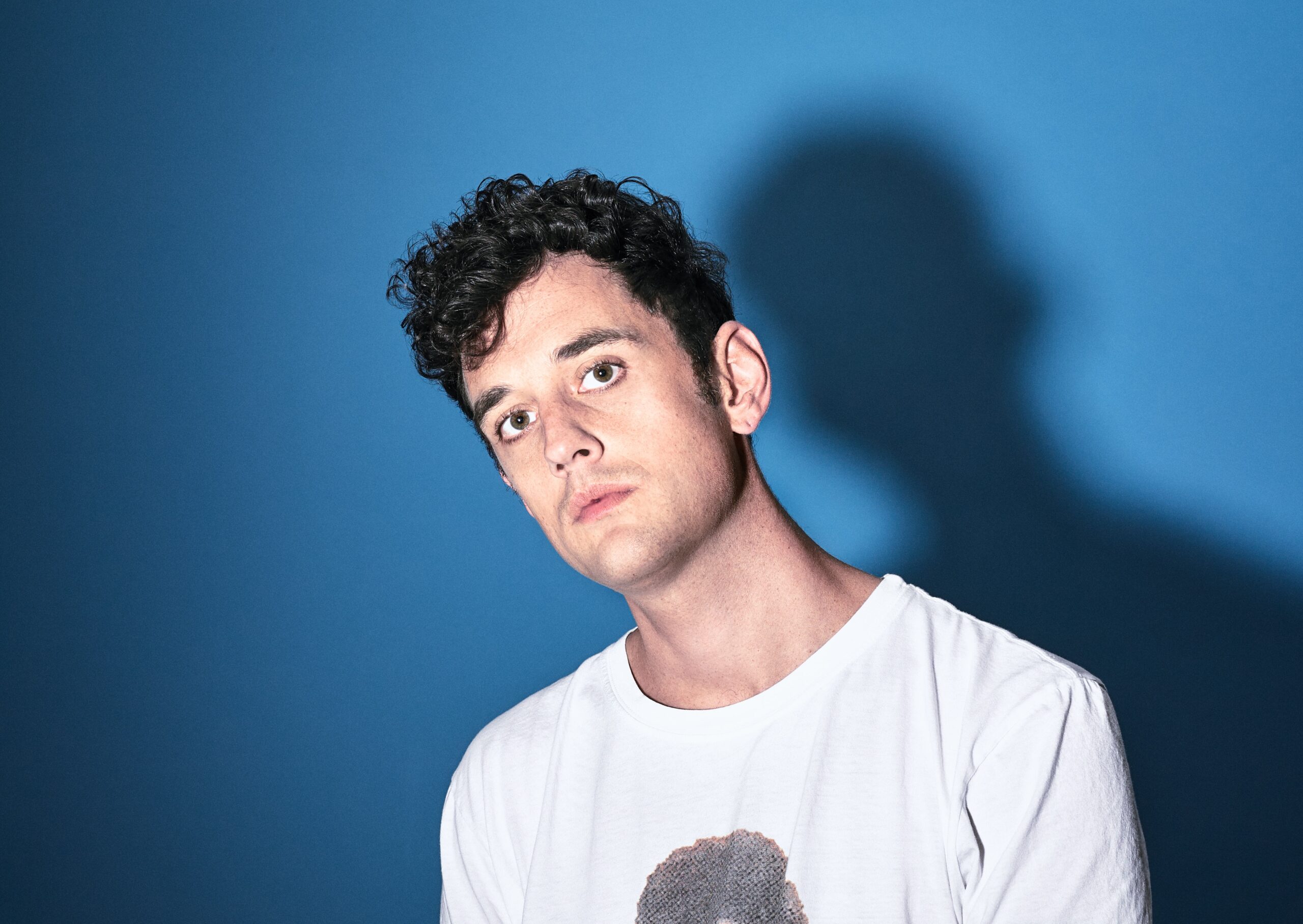Becoming a Successful Producer
Rey Reel is a music producer who has worked on records with many major acts. Rey began pursuing his production career at age 15 in his home studio and soon forged a partnership with the hip hop duo Audio Push (formerly known as The Push), who helped him fine-tune his skills in the studio. Their collaboration, “Teach Me How To Jerk” got over three million plays on Myspace and became a hit single. From there, he began collaborating with recording artist and producer Hit-Boy, a partnership that led to work with superstar artists such as Will.i.am, Diddy, Britney Spears, Drake, Mariah Carey and numerous others. Based in Los Angeles, Rey’s song, “Flawless,” co-written by Beyoncé, Terius “The Dream” Nash and Hit-Boy was just put out in August as the fifth single from Beyoncé’s self-titled album.

Rey talked to me about building his career as a producer, his collaboration with other acts and making a name for himself in the industry. He also shared some advice for producers and other artists who want to get their music heard in the current climate.
MC:
Thanks for taking some time to talk, Rey. How did you get started as a music producer?
RR:
I started taking music production seriously at the age of 15. I had a jam back in the day with Audio Push, formerly known as The Push. They got me involved in the Jerk movement, and I ended up getting over three million plays on Myspace back when that platform was relevant for the song “Teach Me How to Jerk.”
After that, I got requests from other acts in the Jerk movement, so I started developing that sound. But then I decided I didn’t want to over-saturate that market and started producing for The Push and for a lot of other artists outside that movement. That was when production became something I really loved.
MC:
How did you manage to find a place to record? Were you working in a home studio or at local studios?
RR:
I was working at home. In fact, my mom would often yell at me to turn the music down. While everyone else seemed to be spending money on clothes and other miscellaneous things, I was worrying about affording my equipment, getting the best sounds and developing as a producer.
MC:
I’m really happy to hear you say that, because so many people get caught up in perpetuating the image that they have a lot of money, or using their first advance to buy something huge and not necessarily music related. It’s nice to know you stayed grounded. It’s rare artists are able to do that.
RR:
If you surround yourself with the people you grew up with, I think you keep yourself humble. Of course, it’s fun to glorify success once you have it and be happy about it. But at the end of the day, you can’t forget that you’re human and no more or less relevant than any other person in the world.
I think the unique part about being successful is that it means you’ve been able to tap into your talent and find a way to channel it and have tunnel vision about what you’re doing.
MC:
Right. And when you were working with The Push, you made a lot of records that did very well.
RR:
Yes. Countless records. The biggest one was definitely “Teach Me How to Jerk.” But I was also working with Hit-Boy, who was introduced to me by Oktane of Audio Push when I was just starting out. We were all young and had grown up together, so it felt like a family thing.
Hit-Boy had moved to Atlanta while I was working with Audio Push. He came back and wanted to collaborate with me. He said he wanted me to get in with some bigger artists. Working with him really helped me get to where I am today.
MC:
Obviously there were people who recognized you had a lot of talent early on, but as we both know, it takes more than just that to stay in the room with people of that caliber. What did you do that helped you get opportunities like the ones you got with Hit-Boy and Audio Push?
RR:
Other than our brotherhood, it was really just about staying competitive with each other. With Hit-Boy, I would make beats that would outdo his, and then he would come back and outdo mine. If you have a healthy competitive spirit with other artists in your field, you’re going to keep having the drive to one-up them and even one-up yourself so you can do better and better work. Our interest in building creativity and in putting our ideas together and expanding upon them meant we never got out of focus with each other. We were all winners in those collaborations.
MC:
And have you built studios with Audio Push and Hit-Boy?
RR:
Actually, we all have our own home studios. We work together but at the same time are all working on our own individual projects. Hit-Boy is currently working as a producer. Audio Push are signed as artists, and I’m actually working on the full production of their first album under their new name, which is going to be dope.
I’m getting really into the production process now and staying away from artist development. I just love the composing part of music, and I really want to get into orchestration and sync in all genres of music. Whether I’m good or terrible at every single style doesn’t matter to me; I just want to be able to dabble in everything a little bit.
MC:
You never know until you try, so that’s a good philosophy.
Tell me how the bigger acts started showing up. You have a Beyoncé credit and have worked with a lot of other big names.
RR:
My first placement was Will.i.am’s “Scream and Shout” featuring Hit Boy. I’ve also worked with Britney Spears, Diddy, Lil Wayne and others. But the Will.i.am song was my first real credit, and while it was a minor credit, I thought it was pretty cool. I had been doing a lot of work that whole summer doing beats for Drake and Rihanna and Justin Bieber, but none had been placed. I was working with a lot of top artists because of Hit-Boy, who was putting me in these developed pop production sessions. It was a super helping hand.
The Beyoncé credit came when I gave Hit-Boy a batch of beats. He took them out to New York with him to work with Beyoncé and played them for her. He called me and said she wanted to do a record to one of them. I was holding my breath, because you never know nowadays if a particular song will actually end up on an artist’s finished album.
Hit-Boy came back to CA a week later, and they called us in to finalize the mix for the record. We mixed it, and that was that. It was unexpected but beautiful.
MC:
Obviously, your brotherhood with artists like Hit-Boy and Audio Push played a big part in your success. And your talent has also been a huge factor in your success. What do you think it was about the pitches these people were making on your behalf that helped you get these opportunities?
RR:
There’s a lot that goes into making music. I think artists just really have to believe in their own abilities and in being able to succeed. Sometimes I feel like I’ve kind of been given a cheat code, but I also know I have talent and have always surrounded myself with other talented people.
Now that I’ve had the opportunities I’ve had, I’m really looking to take the music world by storm and take charge of my own career. Of course, these opportunities have been a great push start for me. I have a nice launch pad for myself and will have the basis for making my brand a household name.
MC:
You’ve had a lot of experience in the studio working with artists of all types. Are there any mistakes you see that you can advise people against?
RR:
I haven’t witnessed any business mistakes being made in my circle firsthand, thankfully. But I’ve still heard stories about mistakes made that I’ve definitely learned from. Hearing about them helps me develop a business mind for now and the future, because, I can have talent all day every day, but if I don’t know how to run my business, I won’t be on the map.
What really bothers me about the music business is the politics. I’ll give you a little insight into what I think: A lot of people say they want to change the music business to make it better “for the music.” And, yes, I want to change it for the music too, but the music will automatically change for the better if the business part changes for the better.
I actually think there are a lot of things that are unfair at the moment about the business side. I don’t like that we have to get political to hear certain people’s music or give certain artists credit for their work. For example, when the Beyoncé record was being made, there wasn’t necessarily anyone checking for me or checking in with me. I was getting my sessions and information through Hit-Boy.
MC:
That was what I was wondering about, as that was that particular credit that got my attention. I definitely wanted to talk to someone who was involved in a Beyoncé track.
RR:
Exactly. And I’m still pushing my work. I’m still playing many of the same beats I always played to this day. I played them thousands of times, often for the same artists over and over again, and they weren’t necessarily getting picked up. Now a lot of artists are going back to the ones they initially passed on and saying, “That’s hot. We’re going to use that one.” And I’m not sure if I’m always getting credit for my work. I just don’t think that’s fair, and I would like to run my business differently.
MC:
If you ran your business in a way where you were always trying to create splits that were equitable without fault, you would certainly be in the minority, but you would get a lot of work.
In your experience pitching your own music, have you found certain strategies that have worked better than others?
RR:
You have to be able to articulate your idea. Everyone always says, “You have to sell them your idea.” But I think it’s way more important to be able to explain your idea and give people the real you. Be able to tell them what you hear and the potential you see in the work. A lot of people don’t do that these days. They just play the beats and leave it at that. But if you are a real producer, you are telling a story through your work. You have it all planned out, from the beginning of the record to the end of the record; you know how you want it to sound. You know lyrically where you want to go with it.
When you pitch your music to a specific artist, you also have to tailor that pitch to that artist. You need to make it feel like theirs and really let them own that record.
MC:
Are there any production techniques you’re really tired of hearing, that you feel are stale?
RR:
Not really, actually. Everyone’s creativity is their own. There is no wrong or right way to produce. If it’s coming out of your mind, and you’re hearing a specific sound, that’s the way you should do it.
The only technique I do have a problem with is a little over saturation of certain types of music on the radio. There’s no diversity in music on the radio anymore. Back in the ‘90s, and even up to about 2005, you could hear Nelly’s “Air Force Ones” and then switch to Brandy’s “The Boy is Mine” and still be jamming out. Now it’s about hearing a turn-up record the whole time with the same tempo and same sound. I don’t feel like labels are trying to push diversity anymore. And radio stations used to break records all the time because they would play anything if it was hot, even if it wasn’t a name brand. Now, if it’s not that name brand, it seems like they won’t play it.
MC:
I agree with you. That phenomenon isn’t getting any better either.
RR:
I struggle with that all the time. I think, “Don’t you want to be the one to open up the world to this great record? Inspire!” All they have to do is give someone a shot and then let the world decide.
MC:
I know you are working with a PR company, which can be really helpful. What else are you doing in terms of promotion?
RR:
I’m active on social media, particularly Twitter, Instagram and Facebook. I keep it really straightforward, clean and pretty. I’m not much of a personal tweeter or Instagram user.
MC:
Well, and no one really wants to see a photo of your peanut butter and jelly sandwich.
RR:
Exactly. I will sometimes see someone posting a picture of a drink and think, “You posted a picture of that same drink two weeks ago.” I’m more old school when it comes to communication. I don’t love texting. I’d rather call someone.
MC:
What has been your experience with other online platforms, for instance, SoundCloud?
RR:
SoundCloud is one of my major outlets for sharing music. I upload anything and everything I do there when I feel it is worthy of being shared and pushed. I’m also currently redoing my whole website. To be honest, I’m just now getting deep into promoting myself online. I’m looking forward to doing more of it as I continue to take control of my own career.
To learn more about Rey Reel Follow him on Instagram: https://www.instagram.com/reyreel/.









